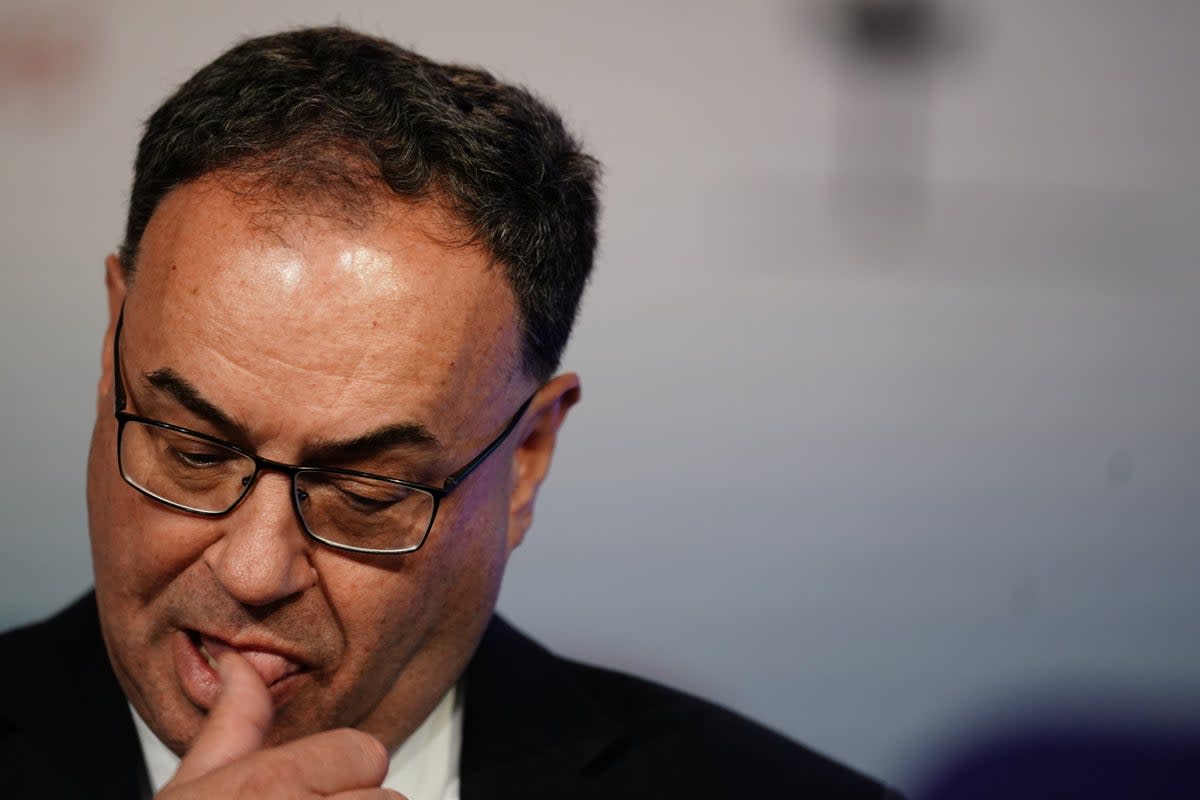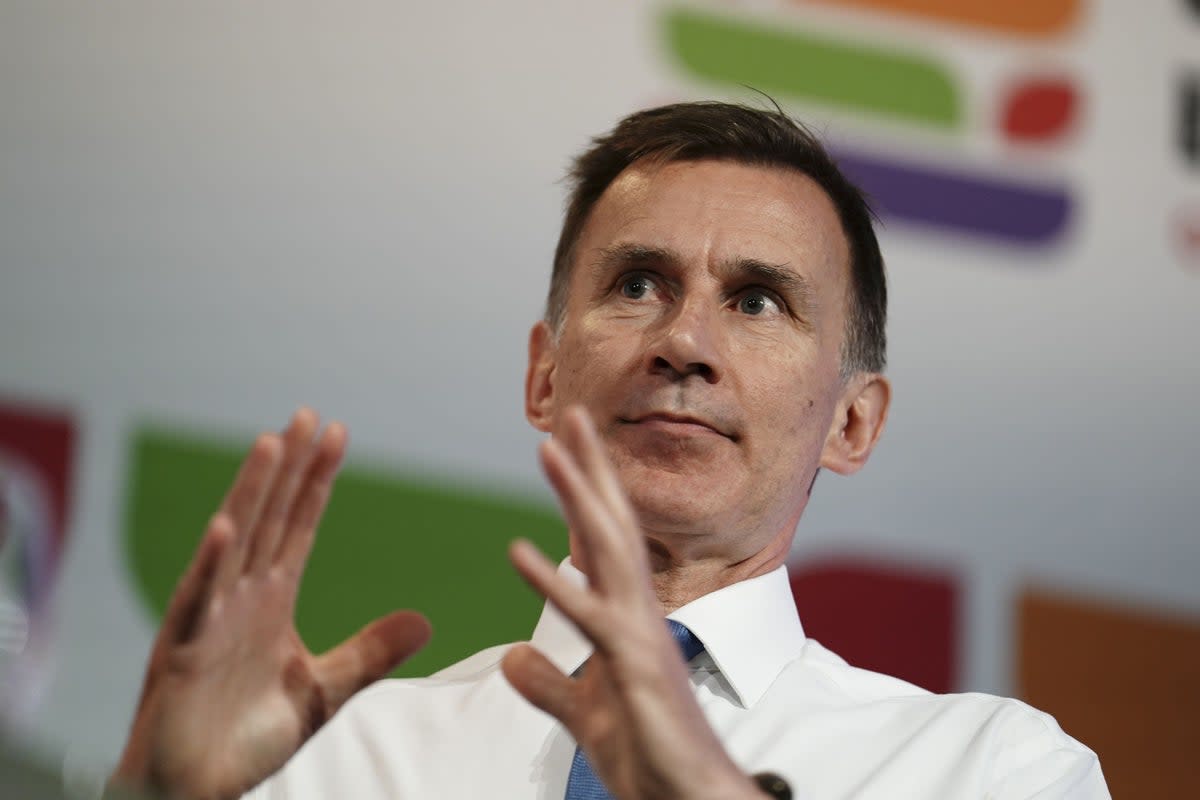Bank of England admits it made errors in inflation forecasts

The Bank of England has “very big” lessons to learn, it said after admitting errors in its UK inflation forecasts.
The central bank’s top economist, Huw Pill, acknowledged its forecasts for inflation were “too low”, leading to mistakes in its decision-making.
And governor Andrew Bailey said: “I think there are some very big lessons in how we operate monetary policy in the face of very big shocks.”
The admissions came as the Bank faced a grilling from MPs on soaring interest rates, which have spelled misery for borrowers – including millions of mortgage-holders.
It also came as the International Monetary Fund (IMF) said Britain is no longer heading for recession this year, upgrading its forecast.
The international body said the UK’s economic outlook remains “subdued” – but is now forecasting growth of 0.4 per cent in 2023, having previous estimated a 0.3 per cent contraction.
The IMF said the change reflects “higher-than-expected resilience” in both demand and supply – pointing to improved confidence because of post-Brexit plans and declining energy costs.
Chancellor Jeremy Hunt heralded the IMF report as a “big upgrade” for the country’s prospects and credited the Rishi Sunak government with taking “action to restore stability and tame inflation”.
In an update to recent forecasts, the IMF said: “Buoyed by resilient demand in the context of declining energy prices, the UK economy is expected to avoid a recession and maintain positive growth in 2023.”
However, IMF economists made no change to the growth forecast for 2024, with the economy set to grow by only 1 per cent next year, 2 per cent the following two years before returning to a long-run growth rate of around 1.5 per cent.
“Growth is projected to rise gradually to 1 per cent in 2024, as disinflation softens the hit to real incomes, and to average about 2 per cent in 2025 and 2026, mainly on the back of a projected easing in monetary and financial conditions,” the IMF said.
Mr Hunt, who met IMF managing director Kristalina Georgieva at Downing Street on Tuesday, said the body praised “our childcare reforms, the Windsor Framework and business investment incentives”.
He added: “If we stick to the plan, the IMF confirm our long-term growth prospects are stronger than in Germany, France and Italy – but the job is not done yet.”

In a further boost, Mr Bailey said inflation had “turned the corner”, suggesting the rate at which prices are rising will start to ease. Official inflation figures on Wednesday are expected to show the rate of consumer price inflation slowed to below double-digits last month.
Labour’s shadow chief Treasury secretary Pat McFadden said the IMF report revealed “the fragility of the UK economy – highlighting the slowdown in economic activity since last year and stubbornly high prices”.
The opposition frontbencher said there was also “uncertainty dragging down growth” after the Liz Truss’s government’s disastrous Budget in autumn 2022.
The latest IMF report endorsed the UK plugging skills shortages with immigrants, amid a fierce debate among Tories about government policy ahead of the publication of new data this week on net migration.
According to the IMF, the UK should look at “fine-tuning the immigration system to alleviate sectoral and skilled labour shortages and enhance labour market flexibility”.
Ministers have come under pressure from some quarters to set out plans to bring down net migration, with the Office for National Statistics set to publish annual figures this week that could show it reached at least 700,000.
Excellent meeting with UK Chancellor @Jeremy_Hunt in London today. The UK authorities have taken decisive actions to promote macroeconomic and financial stability and are focused on the fight against inflation and on reforms to boost productivity, labor supply, and investment. https://t.co/TuipC6Nl0K
— Kristalina Georgieva (@KGeorgieva) May 23, 2023
The IMF also appeared to back Mr Sunak’s approach to post-Brexit issues, hailing the UK and the EU finally reaching a deal on the Northern Ireland Protocol.
The body also positively noted the “more measured approach for retained EU laws” as something that will benefit business.
The recent scaling back of post-Brexit plans to scrap EU laws prompted backbench anger among Conservatives, but there have been signs in recent months of better relations between London and Brussels.
In the report, the IMF expressed hopes that the UK can return to the EU’s Horizon science programme, saying it can boost small and medium-sized firms’ access to finance and research and design support.
In a gloomier assessment, the IMF said Britain could experience high interest rates for some time to come as the Bank of England battles inflation.
The Bank increased the base interest rate to 4.5 per cent earlier this month, the 12th rise in a row. The IMF said “further monetary tightening will likely be needed, and rates may have to remain high for longer to bring down inflation more assuredly”.
